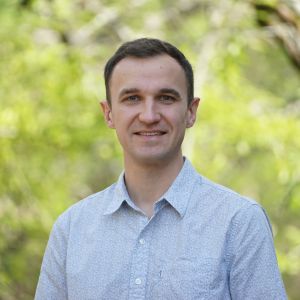Bionote

Peter Pietrzyk is a Research Associate at the Fraunhofer IIS – Development Center X-ray Technology in Germany, specializing in the development of optical and 3D measurement systems for plant phenotyping. He earned his Ph.D. in Plant Biology from the University of Georgia and holds a Master’s degree in Geomatics as well as a Bachelor’s degree in Aerospace Engineering from Delft University of Technology. With extensive experience in image and data analysis across various spatial scales, Peter works with both 2D images and 3D measurements, including both belowground and aboveground phenotyping. In his current role, he is passionate about translating research into practical solutions for the industrial sector.
Presentation Abstract
In the field of agricultural technology, the Fraunhofer IIS – Development Center X-ray Technology EZRT specializes in advanced 3D plant phenotyping using optical sensors and X-ray technology. Our recent initiative, the For5G project, aims to enhance fruit cultivation by integrating drone imaging with advanced algorithms for trait extraction. By employing drones equipped with RGB cameras, we capture multi-view images to create detailed 3D models of trees in orchards, facilitating comprehensive health and yield analysis. To achieve efficient 3D reconstruction, we utilize Neural Radiance Fields (NeRF), which also allow us to extract semantic information for applications such as fruit counting and plant segmentation. This methodology has been further successfully adapted to a turntable setup for indoor phenotyping, enabling us to address occlusion issues in complex plant structures that often arise with traditional 3D imaging methods like laser scanning. At our Technology Center for Phenotyping in Merkendorf, we are now establishing a high-throughput phenotyping center capable of analyzing up to 400 plants in climate-controlled chambers. This state-of-the-art facility integrates 3D NeRF methods for aboveground analysis alongside X-ray CT imaging for belowground measurements. With an anticipated operational launch in 2025, our center is positioned to be at the forefront of sustainable crop production technologies. Our research aims to empower plant scientists and breeders with cutting-edge tools to develop new plant varieties that are essential for addressing global food security challenges in the context of climate change.
Co-Authors: Chiara Paglia, Andreas Gilson, Lukas Meyer, Fabian Keil, Christian Hügel